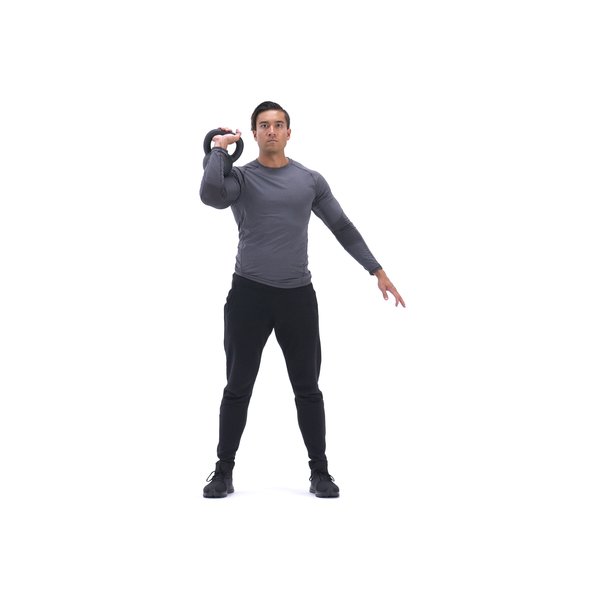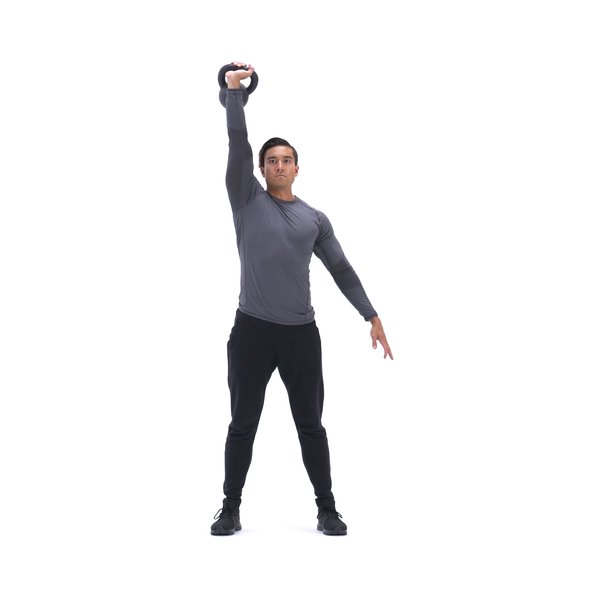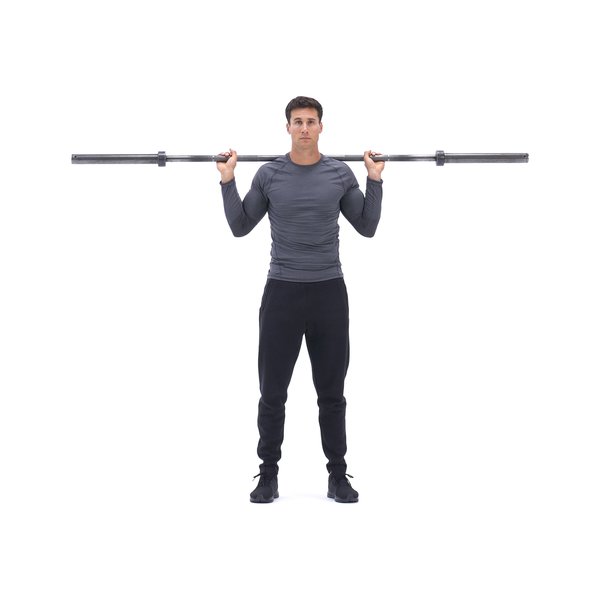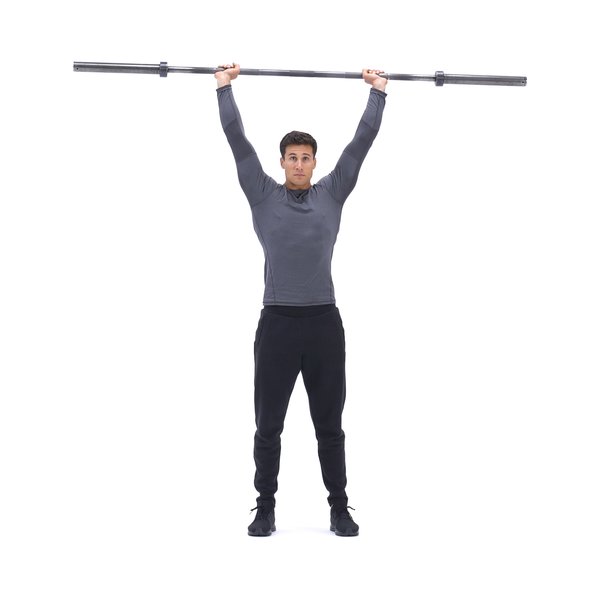Push-press Images
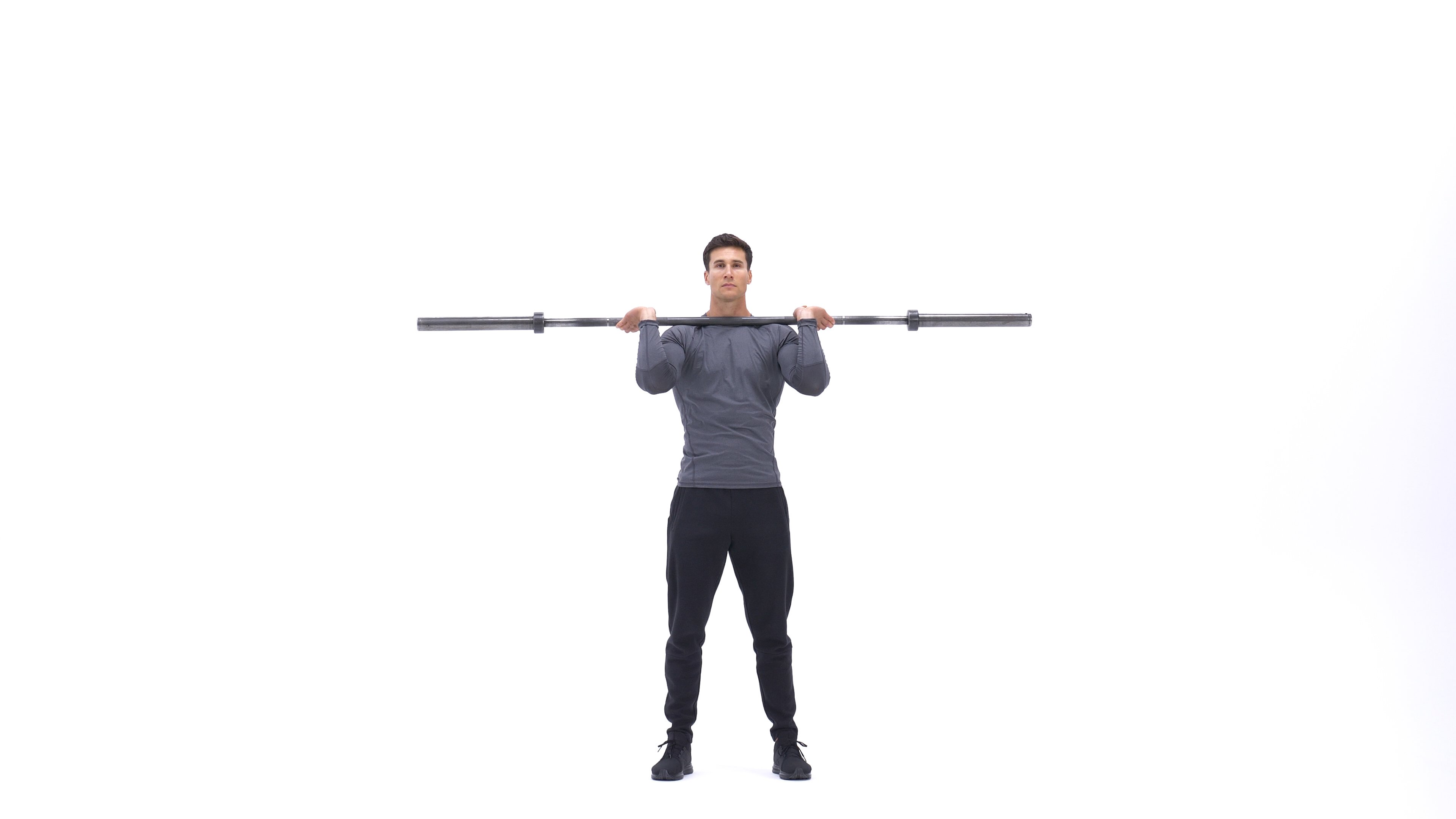
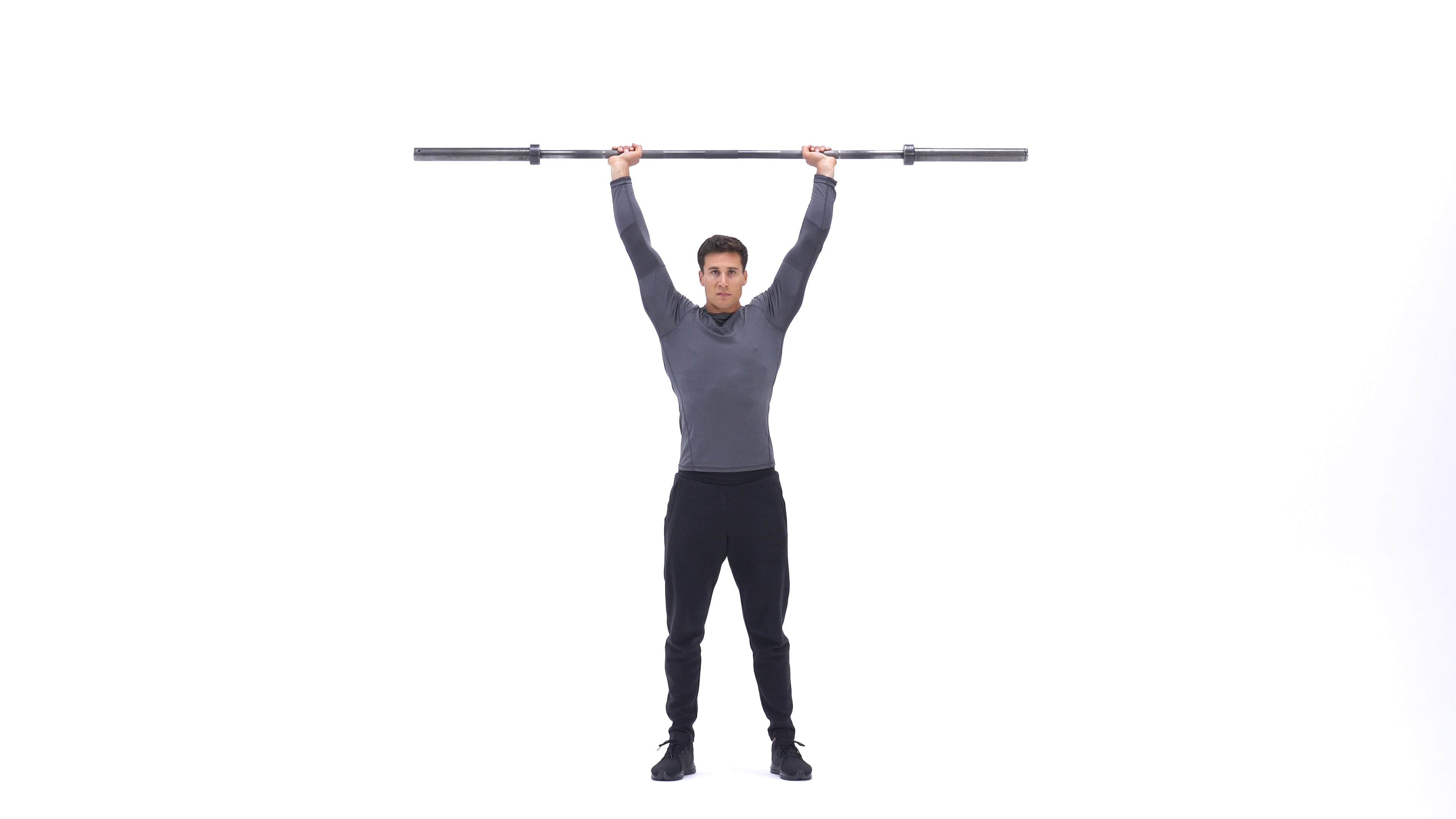
Push-press Instructions
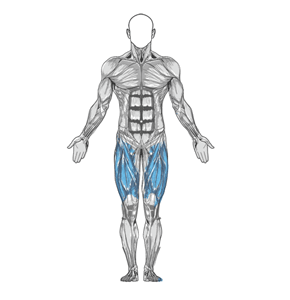
Beginning Position:
- Use the floor-to-shoulder lifting technique described in the Power Clean exercise to move the bar from the floor to the shoulders.
Upward Movement Phase:
- Slightly flex the hips and knees, keeping torso erect.
- Immediately follow with an explosive push upward by extending the knees.
- Keep torso erect and tensed.
- At maximum hip and knee extension, shift body weight to balls of feet and extend ankle joints.
- At maximum plantar flexion, push bar from the shoulders.
- Push the bar with the arms to a fully extended elbow position overhead.
Downward Movement Phase:
- Lower bar to shoulders.
- Flex hips and knees slightly as bar touches shoulders.
- Straighten the hips and knees before the upward movement phase begins again.
Breathing:
- Exhale through the sticking point of the upward movement phase.
- Inhale during the downward movement phase.




